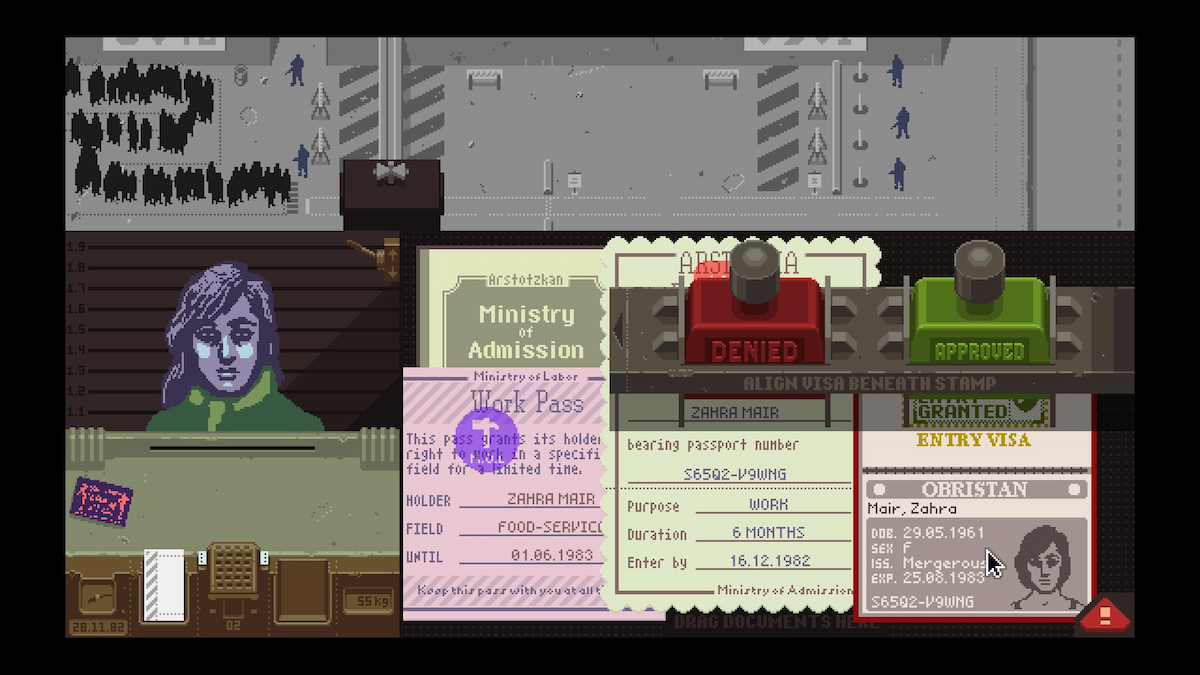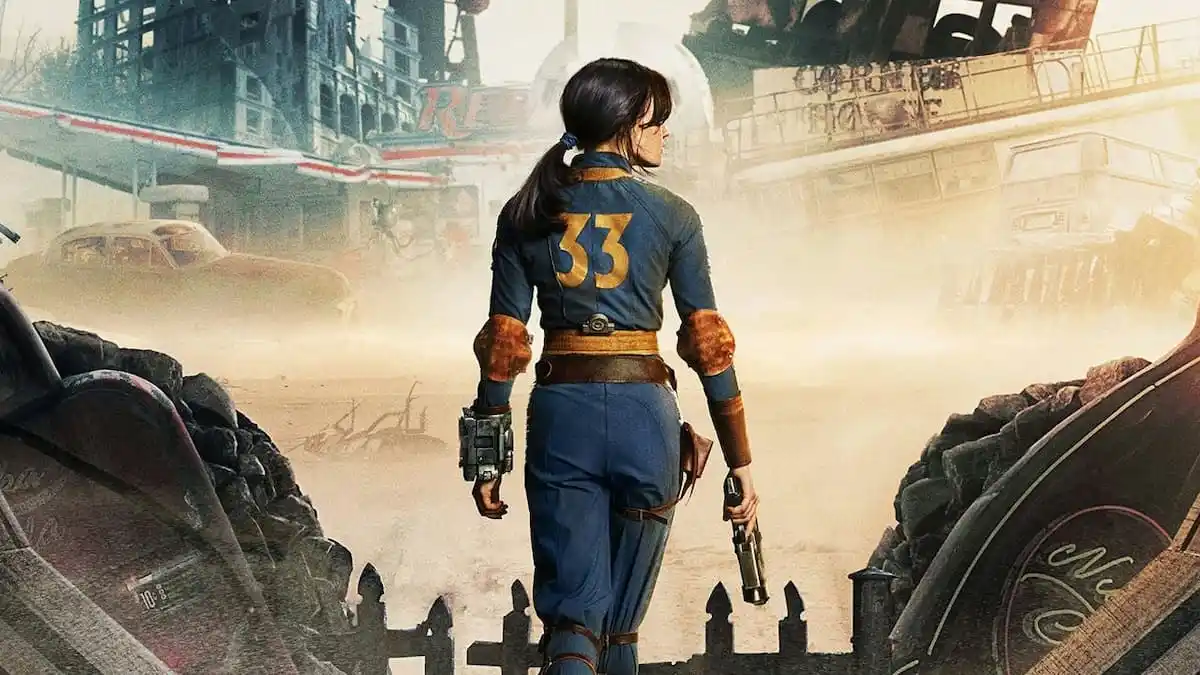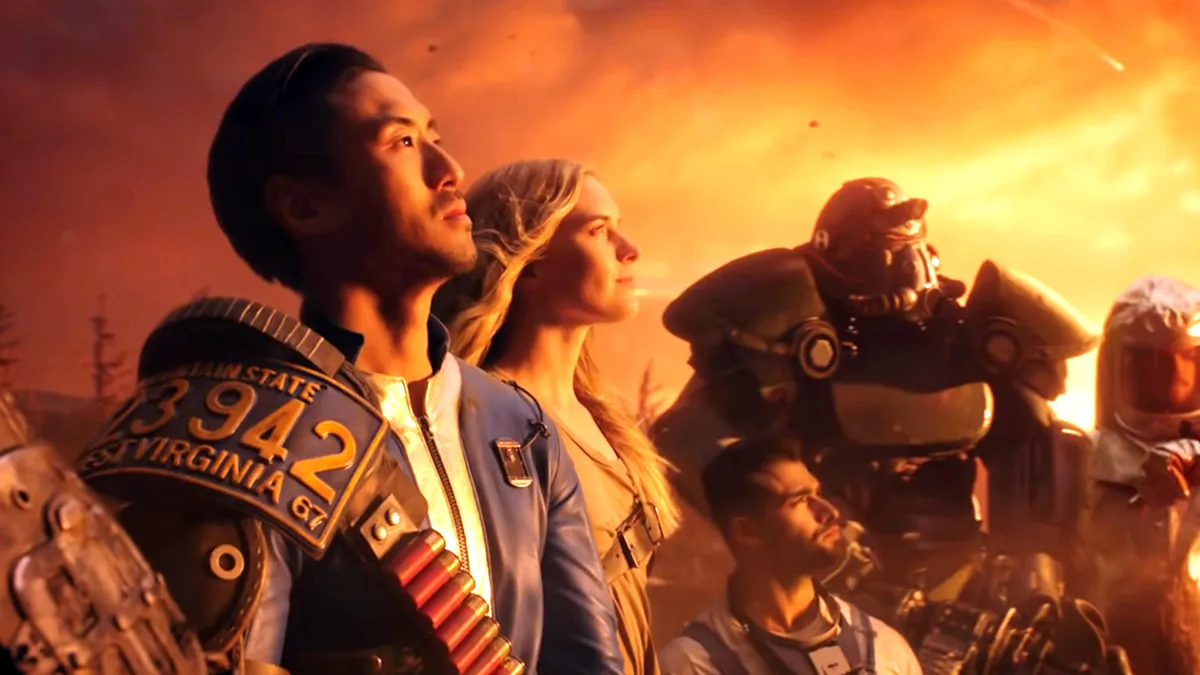If you ask an independent developer what games have inspired them most, there’s a considerable chance that Lucas Pope’s work will have a spot near the top of their list. That’s been my personal experience, at least, and while my sample size of interviewees is modest, the relative frequency of Pope’s name being mentioned is great enough that I’ve been conditioned to expect it.
Recently, I learned that some of my favorite games from the past few years (Strange Horticulture, Scarlet Hollow, and The Case of the Golden Idol, to name a handful) were heavily influenced by Papers, Please, Return of the Obra Dinn, or both. Even developers who don’t credit Pope as having a direct impact on their ideas are often compelled to acknowledge his prestige in the indie sphere — after all, making niche, experimental games that are both critically acclaimed and commercially successful is an impressive feat, particularly for a solo creator. With Papers, Please about to celebrate its 10th birthday, I figured it was well past time for me to play this game that I’ve been conversing about — without having any firsthand knowledge of — for so long, especially since it served as a muse for some treasured titles in my library.
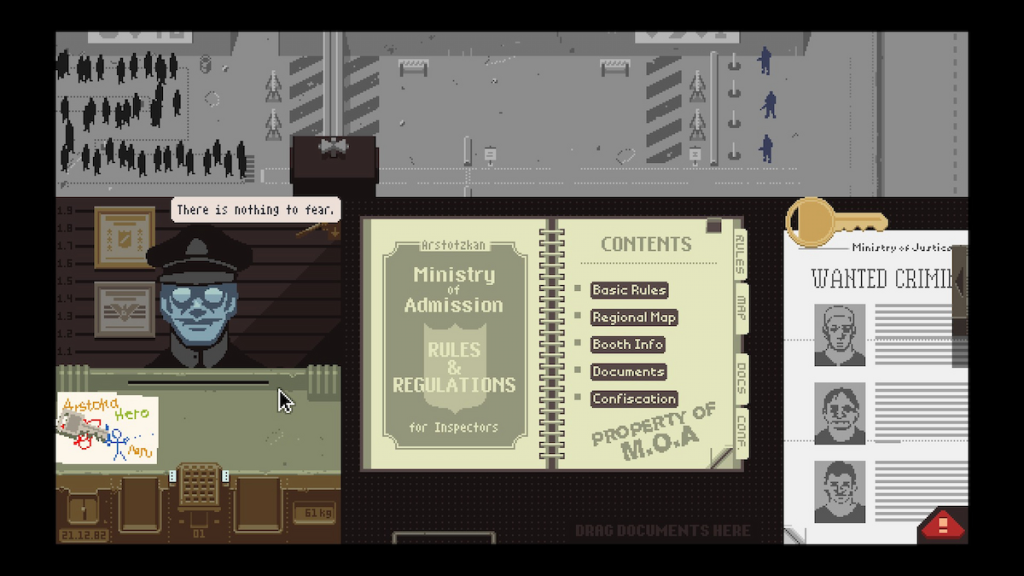
If, like me, you’re behind the curve when it comes to Papers, Please, the good news is that its concept is just as topical today as it was a decade ago. The game places the player in the role of an immigration inspector, approving or denying entry into the communist state of Arstotzka. From your booth at the border checkpoint, you must inspect each traveler’s documentation — passports, identity cards, grants of asylum, vaccination certificates, and more, depending on the current rules in effect — to identify discrepancies and apprehend any criminals, spies, or terrorists attempting to infiltrate Arstotzka.
Those are the rules… but the extent to which you follow them is up to you. Your family’s health and safety depend on your ability to do your job well — be efficient enough to earn a livable wage, accumulate minimal citations, and steer clear of suspicious activity — but at every turn, your morals will be tested by bribery, desperate migrants missing required paperwork, and an undercover organization requesting your assistance in overthrowing Arstotzka’s corrupt leadership. The simple action of stamping either “approved” or “denied” on a passport has potentially catastrophic consequences, and the fates of your loved ones, complete strangers, your nation, and your own life depend on the decisions you make each day.
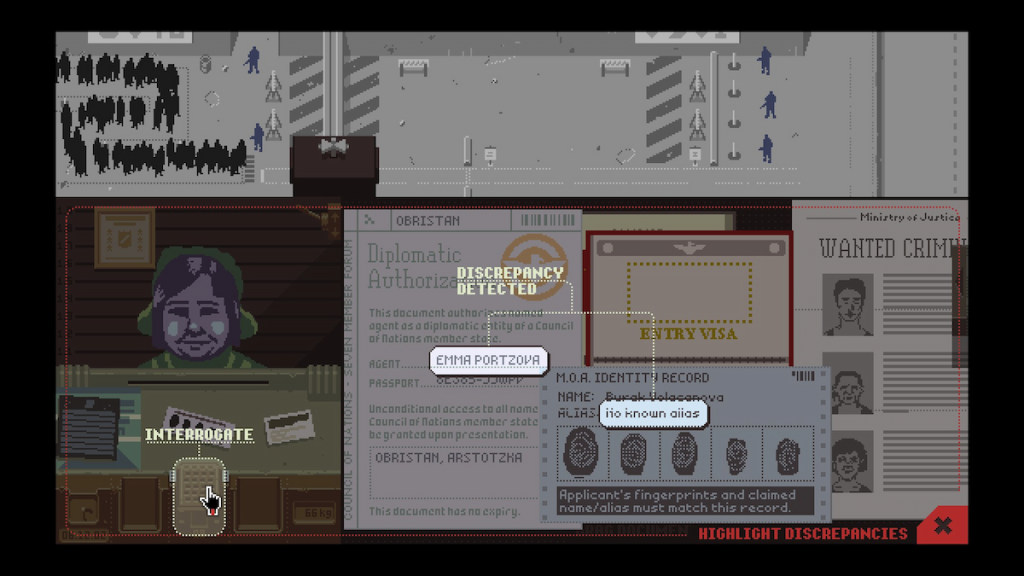
Immediately, it was easy to imagine how the user interface in Papers, Please might have served as an inspiration for subsequent small-scale puzzle games and job simulators like Strange Horticulture. Nearly the entire game is confined to a narrow workstation, where you can rifle through your rulebook, read the daily bulletin, shuffle papers around, stamp visas, and even position a decorative plaque or two. The whole setup feels pleasingly tactile, and the simple mechanics and task-oriented gameplay produce a sense of productivity and control, especially once you establish a pattern for checking each set of documents. I hesitate to call Papers, Please a “relaxing” experience due to the ever-present tension surrounding Arstotzka’s political climate — it’s the kind of setting where someone placing a makeshift bomb on your desk is a mere distraction — but there’s a methodical rhythm to the it that’s immensely satisfying.
However, the real substance of Papers, Please is its moral component. With every red or green stamp you put on a passport, the game invites you to carve out your own ethical code and carefully consider the potential consequences of your actions. Sometimes, empathy comes at the expense of safety. Other times, you’re asked to kill in the name of your ideals. Regardless of what your ultimate goal is — to provide for your family, to serve your nation to the best of your ability, or to bring about positive change in the government — accomplishing it without blemishing your conscience at least a few times along the way is simply not possible. There are no easy answers; no straightforward path to becoming “the good guy” in this story.
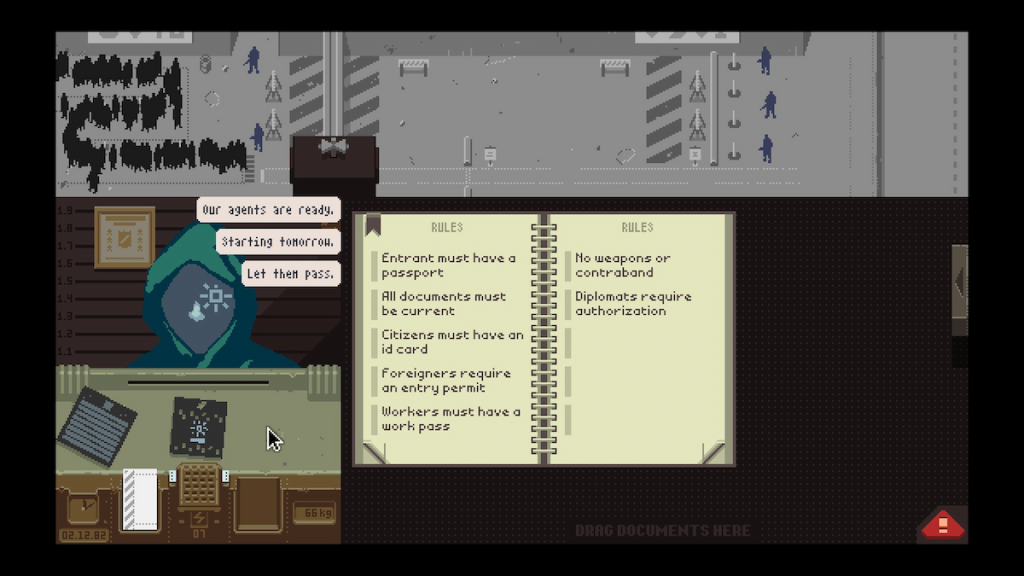
To get the full Papers, Please experience, I completed approximately 2.5 playthroughs, which was enough to acquire all 13 Steam achievements and witness every “major” ending. Across all of my save files, only one thing remained consistent — the most amiable, kindhearted character was always a career criminal carrying the most blatantly forged passport in existence — and honestly, I can’t think of a better representation of this game and its legacy.
Papers, Please was released on August 8, 2013 and is available on PC, mobile, and PlayStation Vita.

